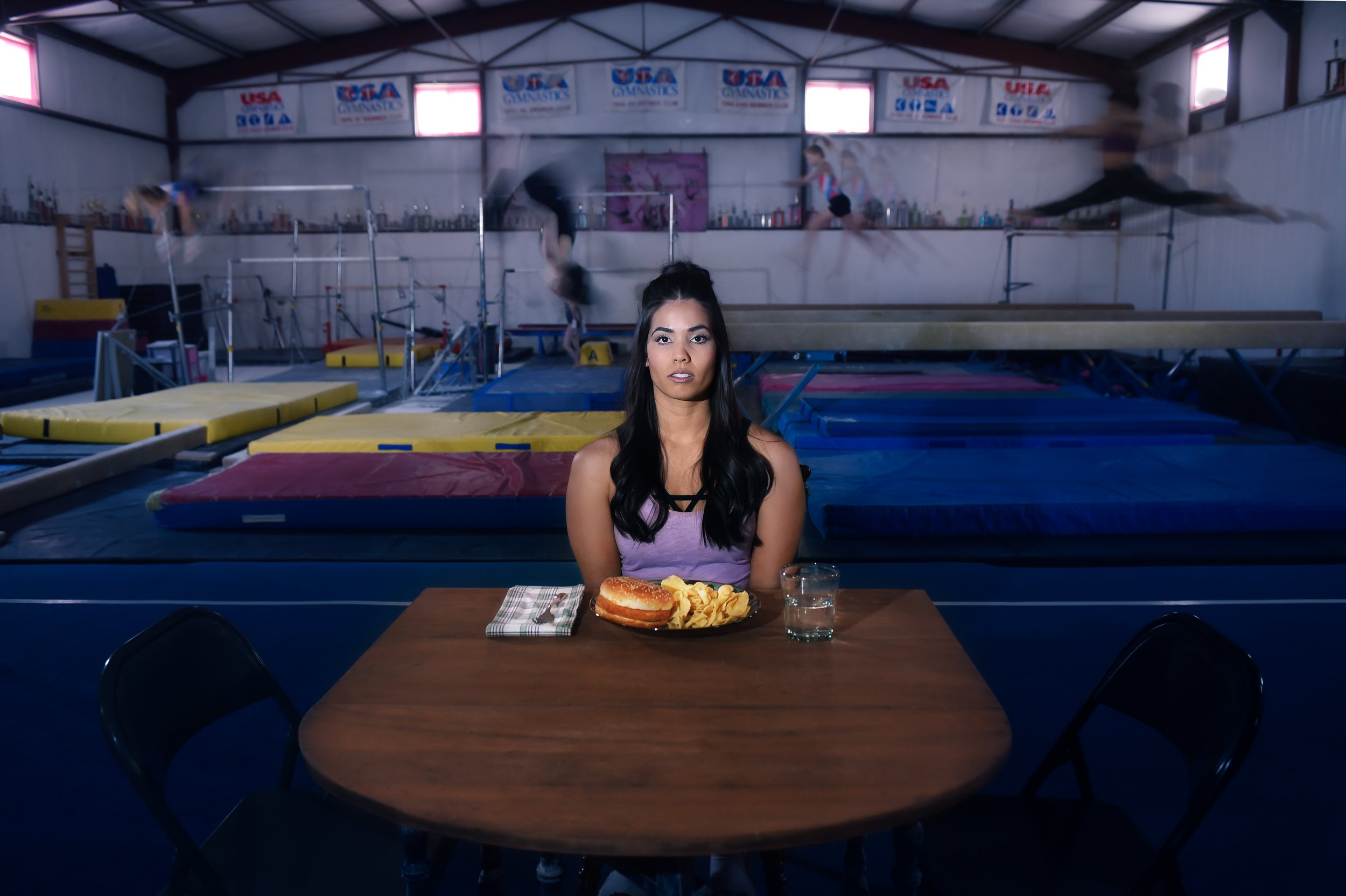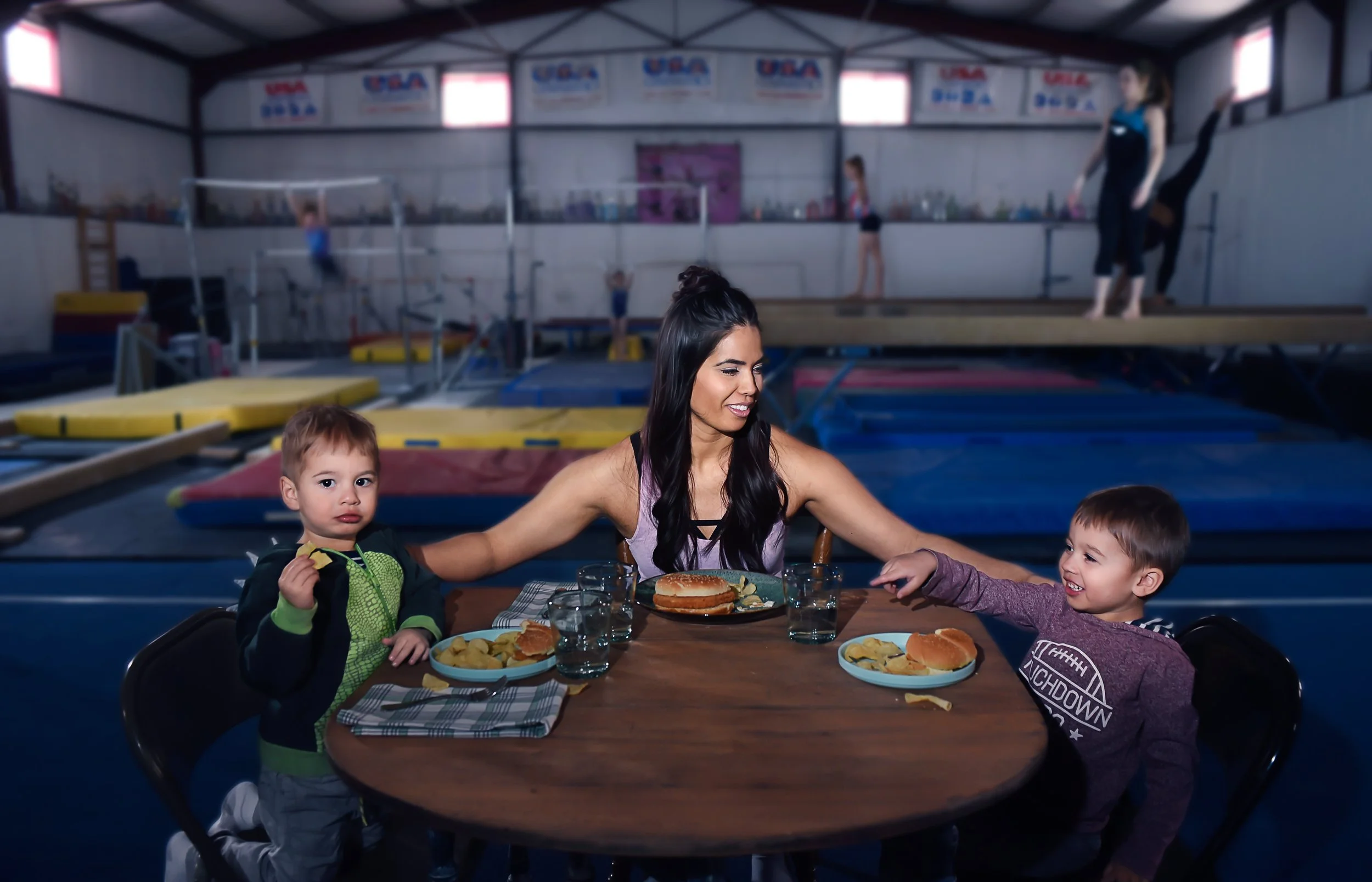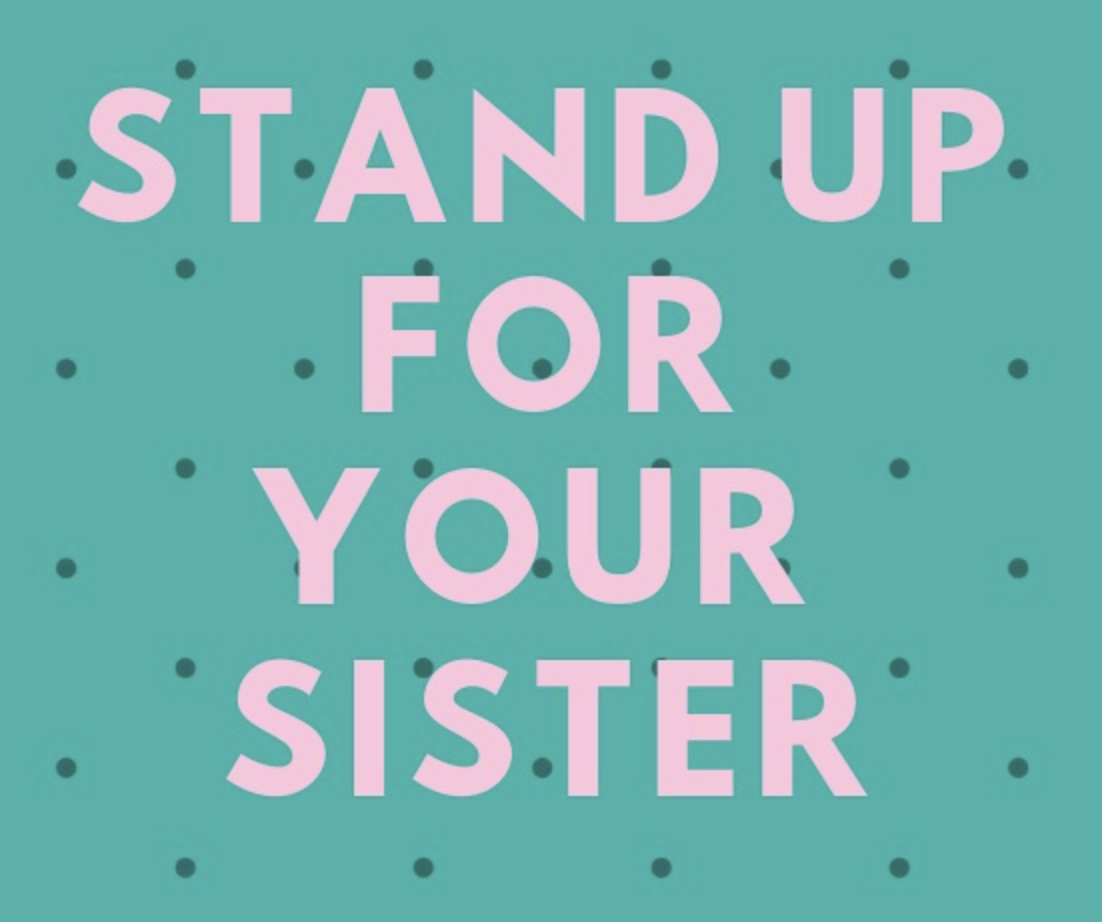
“I want girls at a young age to learn to love themselves and not look at that broken mirror.”
[image description: (Image 1, above) - a young woman sits at a dining room table in the center of a blue, springboard floor at a gymnastics studio. She has long dark hair, dark eyes and wears a purple tank top—a glass of water and plate of food rest on the table in front of her, untouched. In the background, four gymnasts move around the studio - their bodies in motion. Everything moves fast around the young woman as she sits still and stares directly into the camera. (Image 2, below) -a young woman sits at a dining room table in the center of a blue, springboard floor at a gymnastics studio. She has long dark hair, dark eyes and wears a purple tank top. She is accompanied by her two young sons. Everyone is actively eating the food and the woman smiles at her son biting into a chicken sandwich. The gymnasts in the background are now frozen behind her to symbolize more stability and a world that has slowed down.
Melissa, 31 - Kansas
As a competitive gymnast and cheerleader, Melissa has battled an eating disorder for over 15 years. At an early age, changes in her body resulting from intense training led her to believe she was an “imperfection”. Melissa became obsessed and severely restricted her food intake while continuing to train 4-5 hours a day, sometimes more. Friends, family, and coaches tried to intervene, but when Melissa joined professional cheerleading, her disorder worsened.
Many female athletes struggle with eating disorders in sports that can demand physical perfection. Sports like ballet and gymnastics can unintentionally put pressure on female athletes to maintain a small frame while performing in outfits that put their entire body on display. Despite Melissa’s gymnastics studio being a very supportive and body-positive environment, she couldn’t shake the societal standards she felt were expected of her.
Things began to change when Melissa became a mother. She knew she had to prioritize her health for her family. With her husband’s help, Melissa has created a more positive body image and has become a role model for her kids. Now, Melissa is speaking out about her experience and works with Stand Up for Your Sister, helping young women struggling with mental health issues.
Melissa’s story proves that to be a role model for younger generations, we need to fight unattainable and unhealthy physical standards and see past the broken mirror society puts in front of us.







